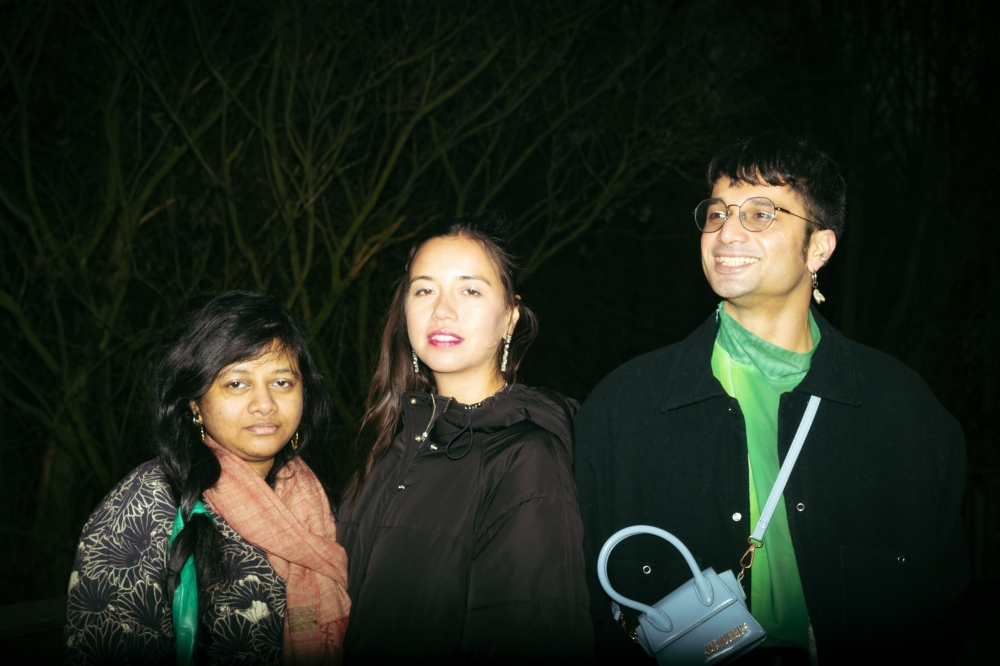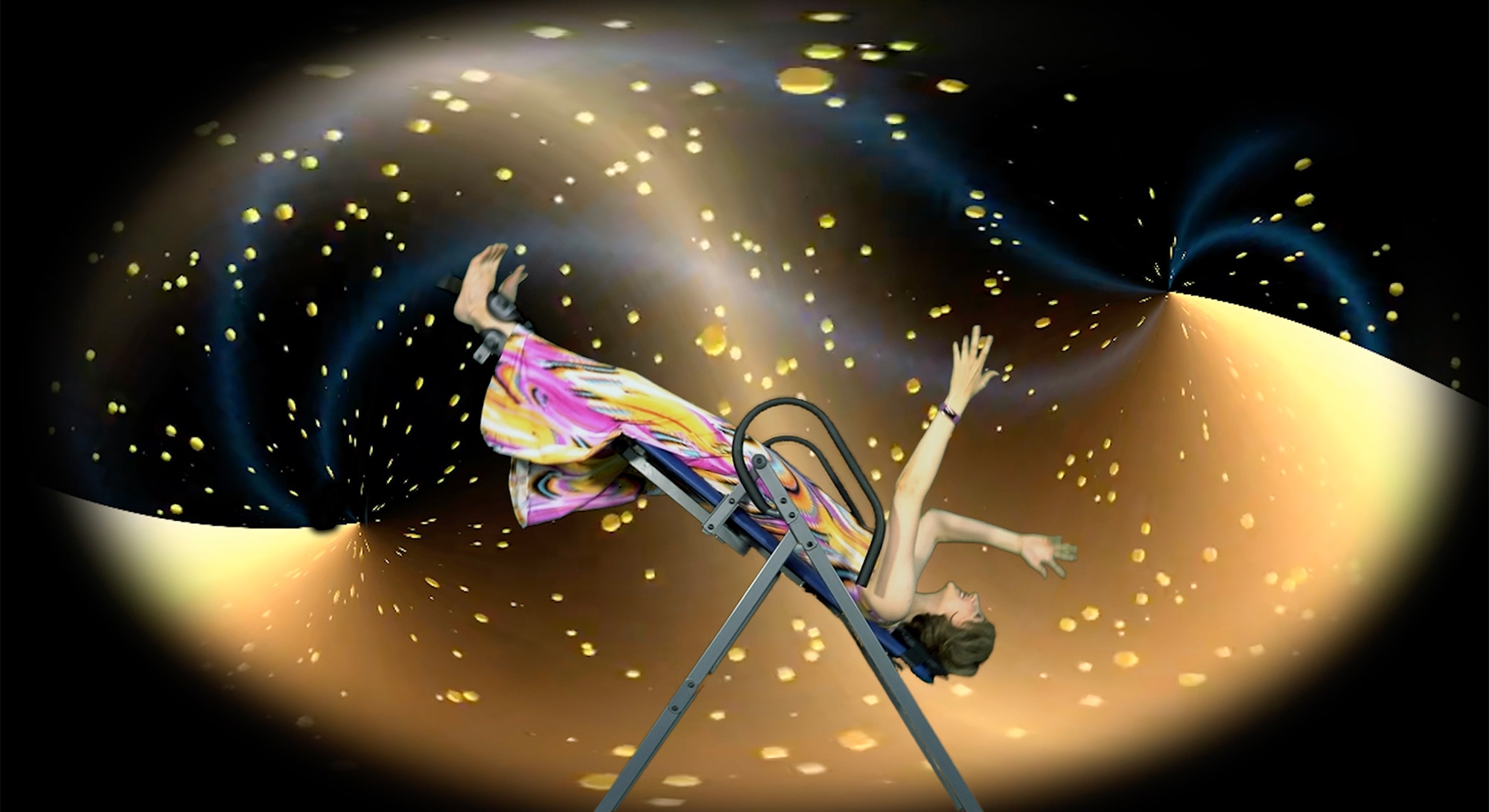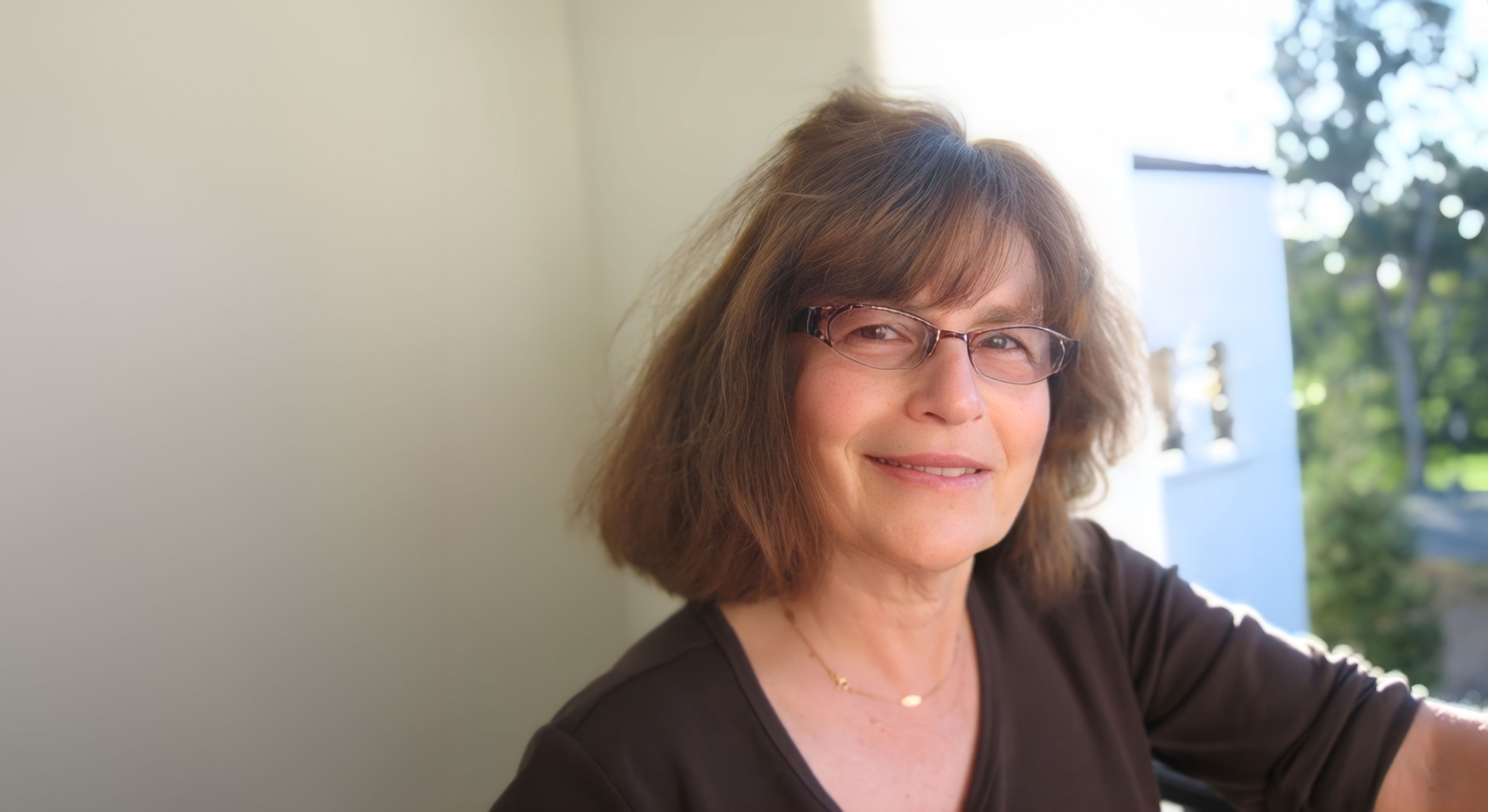
Visionary Exhibitions
For most, seeing an art exhibition means going to a gallery or museum, the “white cube,” as it’s often called. But as long as there has been art, there have been alternative modes of exhibition. This should come as no surprise. In a discipline like art, defined by its stalwart ability to dream and disrupt, getting further out there — or outside of the “institution” — is part of the dance.
A prestigious jury in Denmark believes Pujita Guha, a doctoral student in the film and media studies department at UC Santa Barbara, is on today’s cutting edge of alternative exhibition making. Guha and the collective she co-founded, The Forest Curriculum, recently received the highest honor from the Nordic experimental art world, the Bikuben Foundation Vision Award, which comes with a prize of nearly $1 million.
Over the next three years, Guha and her collaborators — Abhijan Toto and Aziza Harmel of The Forest Collective, and Dea Antonsen and Ida Bencke of the Laboratory for Aesthetics and Ecology — will bring to life an innovative vision for a slow-growing, decentralized exhibition movement. Building on the collective’s scholarship on the environment, Indigenous politics and histories — from the point of view of Asia — “Hosting Lands: Between the Ruin, the Field and the Forest” presents collaborative public events around issues of land justice and sovereignty.
Asynchronously, the exhibition will roll out at six different locations in Denmark, including in a boat at sea and on cultivated farmland. Through community engagement and location-sensitive programming, the collective will invite local and international artists, activists and communities from Denmark, South Korea, India, Puerto Rico and Tunisia, among other countries.
As curators, the collective members take the role of mediators or facilitators, shifting the focus from the people involved, or any objects produced, to issues of land justice and late capitalism related to the communities of each site and its participants.
Guha describes “Hosting Lands” as an exhibition that “unfolds around the land,” particularly agricultural, or plantation land, which makes up most of the land in Denmark and South and Southeast Asia, where members of the collective were born.
“We came to situate our exhibition idea on questions of land, plantation and extraction — and not particular to Denmark,” Guha said. “We wanted to have this conversation about how we talk about plantation land with artists working in different land contexts and including the people who toil it.”
For Guha, the history of the plantation is one of violence, and Denmark, which is 66% agricultural land, provides a living context to discuss farming’s darker aspects, including the exploitation of human labor, imperialism and deforestation.
“Plantation lands are violent spaces,” Guha said. “They convert rich biodiverse spaces into unfertile land — replaced by a single crop and its mass production. But to have that kind of mass production of food, plantations basically extract a lot of labor for very low wages, a history familiar in the U.S. and other parts of the world. It’s non-sustainable and violent historically.”
In their award announcement, the Bikuben selection committee, which is known for recognizing experimental exhibition making practices, said they chose “Hosting Lands” because it revealed “a way of living which extends patiently beyond a spectacular one-off event.”
The committee also noted the exhibition concept’s ties to the land art movement of the 1960s and ’70s, its “non-institutional, self-organized visual arts scene” and its “new methods and practices of care and solicitude that can rethink the relation between host and guest on planet Earth.”
Prior to winning the Bikuben award, Guha held a residential curatorial fellowship in Denmark, leading workshops at the Danish Academy of Fine Art. Her research has been supported by the UC Santa Barbara Chancellors Fellowship, the Mellon Sawyer Energy Justice Project, the Arts Network Asia, and the Australian Council. Last month, Guha and The Forest Curriculum were named to Apollo Magazine’s list of 40-under-40 Asia Pacific Thinkers.



